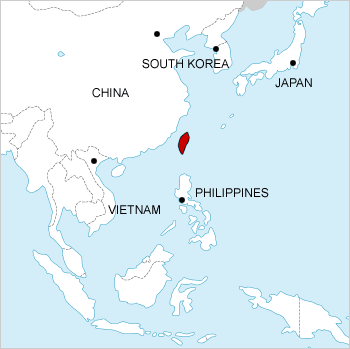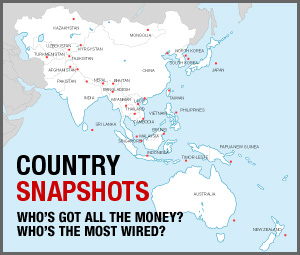
Taiwan Strait 
Tensions with Beijing have declined dramatically since Ma Ying-jeou took office as Taiwan’s president. That situation is a refreshing contrast to the one that existed under his predecessor, Chen Shui-bian. China and Taiwan have established direct air and sea links, mainland tourists are coming to the island in robust numbers, and a wide range of economic ties are growing at a brisk rate. Political relations have also improved as the two sides have engaged in direct negotiations for the first time in a decade and both Beijing and Taipei have made conciliatory diplomatic gestures.
Yet, it’s important not to overstate the improvement in the security environment.
Most notably, China has continued to increase the number of missiles that it deploys across the strait from Taiwan. Moreover, from China’s perspective, the current thaw became possible only because of the conciliatory posture that Ma and the KMT adopted. If Ma and his party can’t sustain their political dominance, it’s uncertain how long the improvement in cross-straits ties will last.
There are already signs of domestic trouble for the KMT — Ma’s popularity has sagged badly as a result of the severe economic recession and his government’s bungling of the rescue and relief effort following Typhoon Morakot. The December local elections also were a disappointment for the KMT and saw a modest revival, at least, for the pro-independence Democratic Progressive Party.
Even if the DPP doesn’t regain the presidency in 2012, there’s little reason to be optimistic over a possible peaceful outcome to the Taiwan problem in the long term. Although a majority of Taiwanese did not support the previous DPP administration’s provocative policies toward Beijing, it is equally apparent that there’s little support for reunification with the mainland. Yet reunification remains China’s ultimate goal. That suggests a nasty collision in the future. Taiwan is unlikely ever to agree to reunification, and China is unlikely to indefinitely tolerate an upstart de facto independent island 100 miles off its own shores, especially as China’s economic and military power continues to grow.
Thanks to Ma Ying-jeou, the day of reckoning regarding the status of Taiwan has been postponed. But it hasn’t been eliminated.
Ted Galen Carpenter, vice president for defense and foreign policy studies at the Cato Institute, is the author of eight books on international issues, including ‘America’s Coming War with China: A Collision Course over Taiwan’ (Palgrave Macmillan, 2006).











